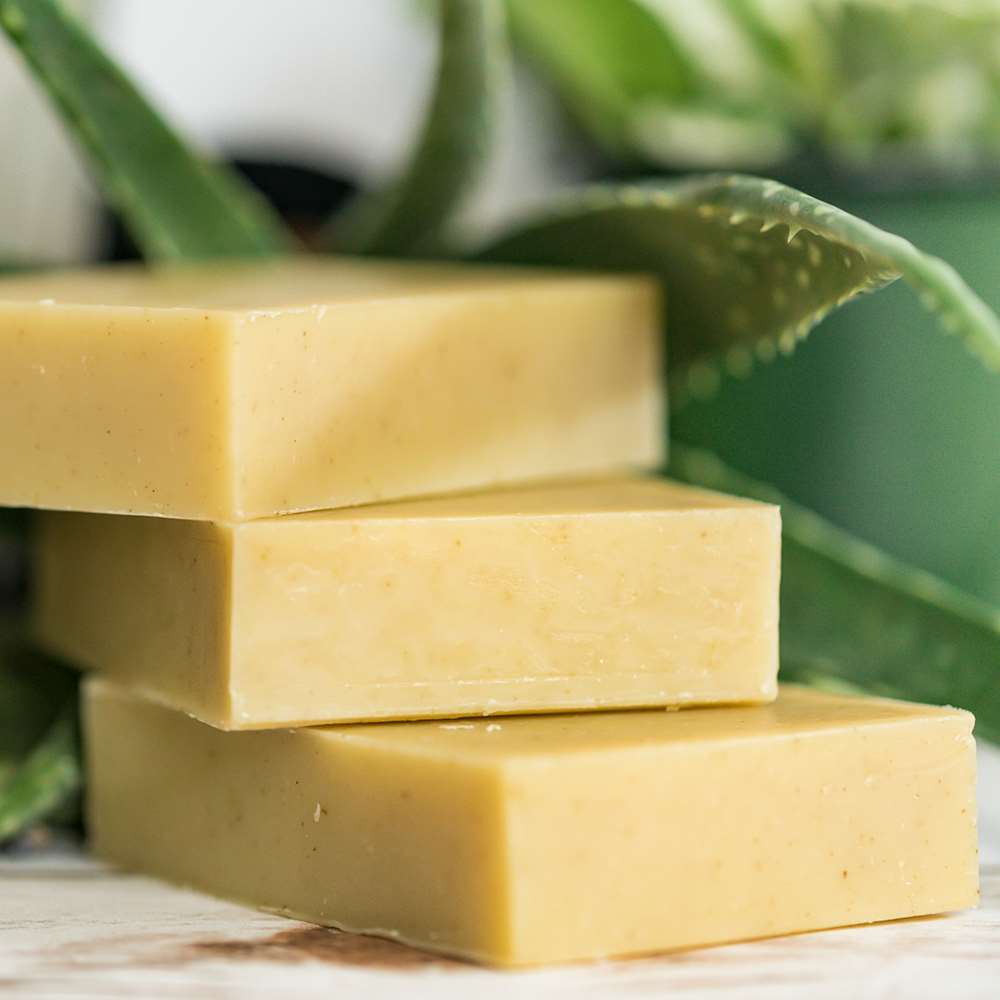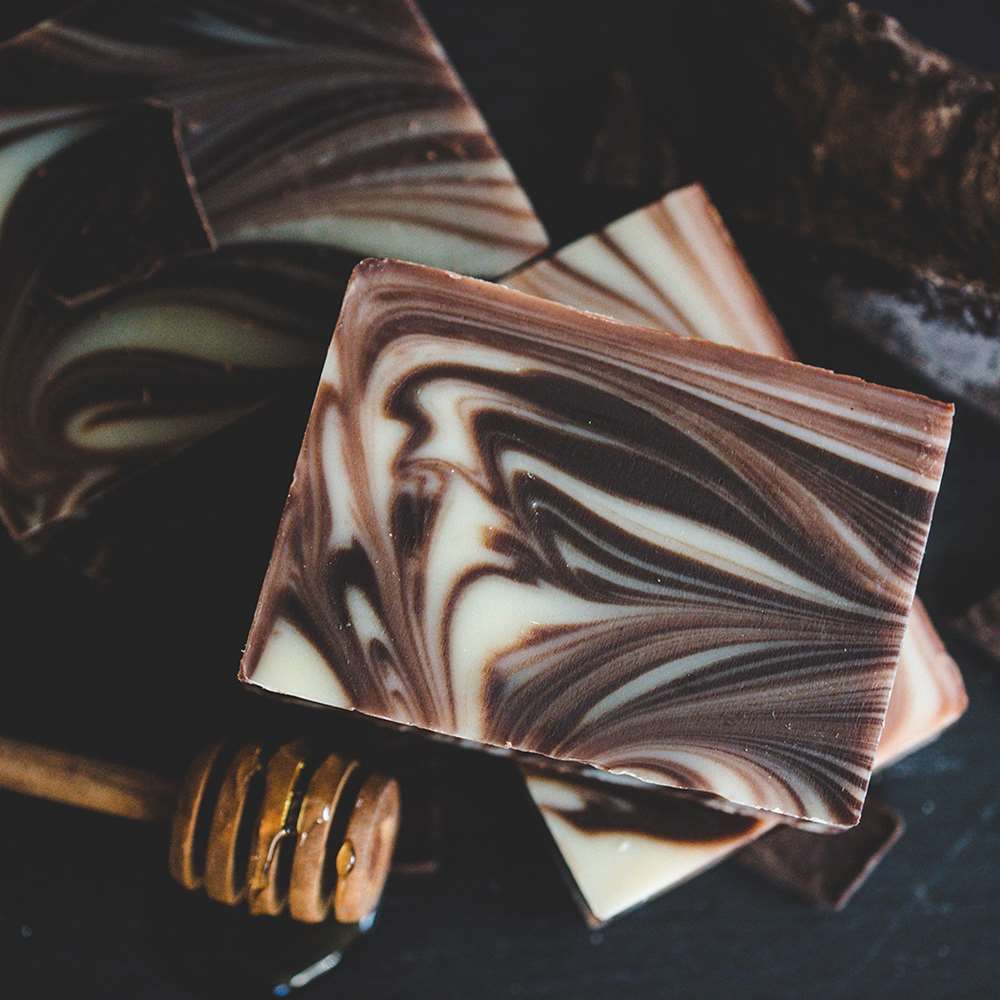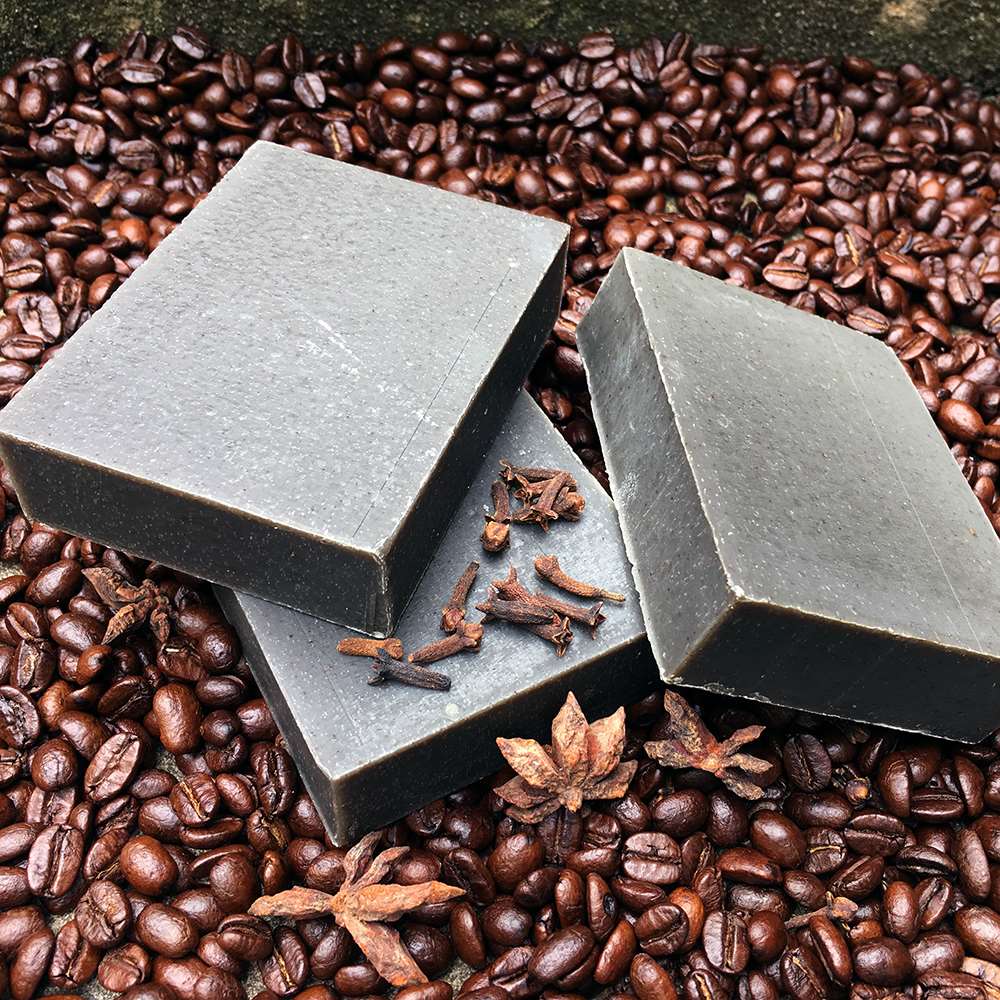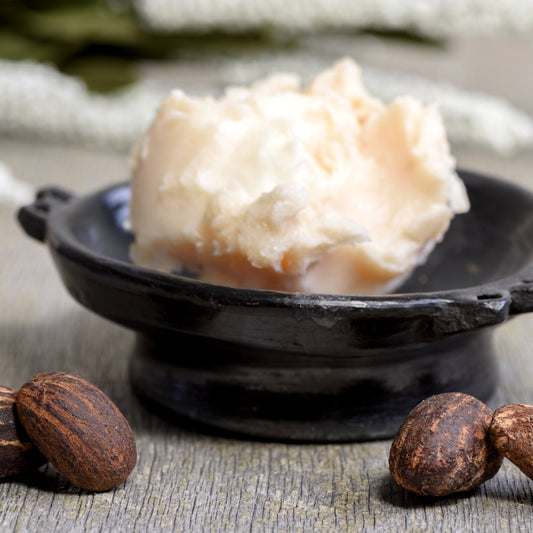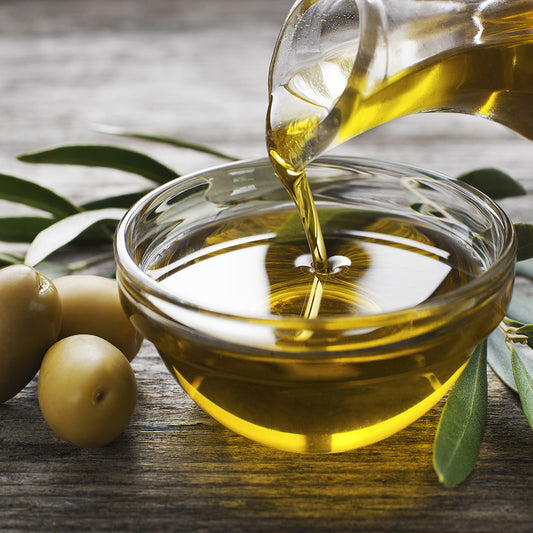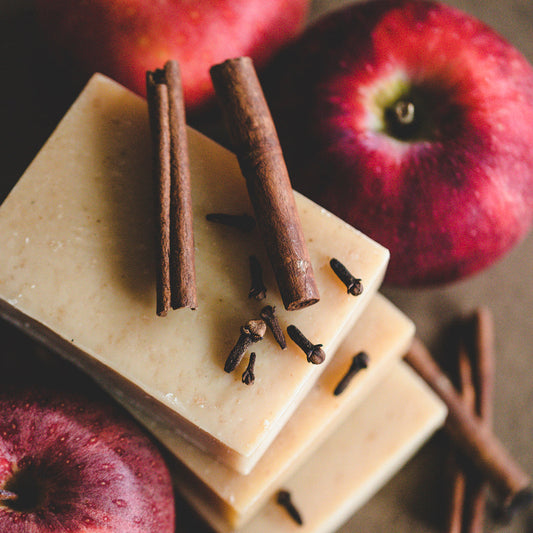Misconceptions About Canola Oil

Canola oil is a great skin care oil. Unfortunately, over the years there has been a lot of misinformation circling around the internet.
We have received a few emails questioning our use of Canola Oil in our natural soap and shampoo bars.
Some of the comments from customers include:
- There is really no such thing as Canola because it is man-made
- All Canola is genetically engineered
- Canola is processed using nasty solvents like hexane
- Canola oil is toxic because it can be used as an insect repellent
- Canola oil is dangerous because it is related to mustard gas
- Why do you use Canola oil?
All Canola is not created equal. The purpose of this article is to clear up misconceptions about the canola oil we use at Chagrin Valley by addressing the comments and questions above.
There Is No Such Thing As Canola Oil Because It Is Man-Made
I guess I would have to agree that Canola is "man-made."
But do you know that as you bite into a sweet, crisp USDA Certified Organic apple, it has been "genetically modified"? Or that as you indulge in a juicy, vine-ripened USDA Certified Organic tomato, it has also been "genetically modified"?
Actually, unless you are buying "heirloom" varieties, just about all fruits and vegetables, even certified organic brands, have been genetically modified and are "man-made."
At this point, I know what you’re thinking—one of the guiding principles of any USDA-certified organic product is that it contains no genetically modified organisms (GMOs). The problem lies in the definition of "genetically modified."
For centuries farmers have used selective breeding (also called artificial selection) with plants and animals to produce desirable traits. Selective breeding is a way for humans to take advantage of natural genetic variation and nurture desirable traits in plants and animals.
 Almost all domestic animals and plants we see today are the result of thousands of years of artificial selection.
Almost all domestic animals and plants we see today are the result of thousands of years of artificial selection.
Broccoli, cabbage, cauliflower, and kale are all selectively bred descendants of the wild mustard plant.
Selective breeding uses the natural process of breeding to encourage desirable characteristics in the offspring.
For example, let’s say that I have a tomato garden with some tomato plants that produce lots of large juicy red tomatoes and some plants that produce only a few small tomatoes. If I keep breeding only the plants that produce lots of large tomatoes, over time, I will have a crop that produces only high yield plants with large tomatoes. (See graphic)
I have now used human intervention to select the traits that I desire in my tomato plants. I guess technically this is a form of natural genetic modification.
Another example is the high "oleic" sunflower oil now available in grocery stores. Through selective breeding techniques the linoleic acid, naturally present in sunflower oil, was replaced with oleic acid in order to increase its smoking point and make it more similar to olive oil for cooking. There is no such thing in nature as high oleic sunflower oil seeds—it is man-made through selective breeding and yet has not received the same condemnation as Canola.
Canola was created by the same techniques used to create the high oleic sunflower oil. Through selective breeding, the fatty acid eurcic in the rapeseed plant was replaced with oleic acid—the predominant fatty acid in olive oil. The name "canola" is short for "Canadian oil low acid," because it was mostly grown in Canada, and this new variety was low in eurcic acid.
 This new canola plant was developed using traditional breeding methods. (Remember Gregor Mendel’s pea plant experiments you learned in school?)
This new canola plant was developed using traditional breeding methods. (Remember Gregor Mendel’s pea plant experiments you learned in school?)
Now, old-fashioned selective breeding techniques are VERY different from what is going on today with GMOs.
GMOs, or "genetically modified organisms," are plants or animals that have been genetically engineered with DNA from bacteria, viruses or other plants and animals.
These laboratory combinations of genes from different species could never occur in nature or in traditional selective breeding.
There is nothing even slightly natural about taking genes from a fish and splicing them it into a tomato plant or creating a goat that makes spider silk in its milk.
Is All Canola Oil Genetically Engineered?
 As I said above the canola plant was developed using traditional breeding methods not using GMO techniques.
As I said above the canola plant was developed using traditional breeding methods not using GMO techniques.
However, today 80% to 90% of the canola oil crops grown in North America are now grown using seeds from genetically modified plants.
What is the purpose of the new GMO plant? To produce higher yields the canola plant was genetically modified in order to make it resistant to herbicides (weed killers) like RoundUp.
The only way to ensure that you are not using GMO canola is to buy canola oil that is USDA Certified Organic.
Part of the requirements for organic oils is that they can only be produced from non-GMO seeds. Therefore, all Organic Canola Oil has to be made with non-GMO seeds.
The use of genetic engineering, or genetically modified organisms (GMOs), is prohibited in all USDA Certified Organic products.
At Chagrin Valley Soap we use canola oil that is certified ORGANIC, meaning no GMOs. Organic oils legally cannot contain any GMOs!
Canola Is Processed Using Nasty Solvents Like Hexane
Most vegetable oils that you buy in a supermarket like soybean oil, safflower oil, grapeseed oil, canola oil, and corn oil are probably processed using solvents like hexane.
Large processors often use hexane because it is very cheap and effective at removing nearly 100% of the oil from the seeds. More oil means more money. It is not as profitable for manufacturers to extract oils by simply pressing them.
At Chagrin Valley Soap we use canola oil that is certified ORGANIC and expeller pressed, meaning that it is extracted from the seed by a mechanical press rather than using a chemical extraction. Certified Organic oils cannot be processed using hexane.
Canola Oil Is Toxic Because It Can Be Used As An Insect Repellent
 There are many natural ingredients that make excellent pesticides.
There are many natural ingredients that make excellent pesticides.
Ancient Indians discovered that neem oil was a great way to ward off pests. In fact, neem juice is one of the most powerful natural pesticides.
All plants produce their own natural pesticides as a chemical defense to protect themselves against fungi, insects, and animals that eat them.
Every species of plant contains its own set of toxins and when plants are stressed or damaged, like during an insect attack, they will increase their levels of natural pesticide.
Our organic insect repellents work because the ingredients are organic oils and essential oils known to contain high levels of natural pesticides.
Many of the common foods that we eat, such as brussels sprouts, cabbage, cauliflower, broccoli, carrots, celery, parsley, parsnips, mushrooms, basil, garlic, onions, citrus juices, pepper, pineapple, and raspberry, contain high levels of natural pesticides.
Canola Oil Is Dangerous Because It Is Related To Mustard Gas
Another piece of misinformation circulating around is that canola oil is not safe because it is related to mustard gas.
While it is true that canola is part of the mustard (Brassicaceae) family, the mustard family is HUGE and includes foods such as cabbage, cauliflower, broccoli, brussel sprouts, horseradish, kale, radish, and arugula.
Mustard gas is an oily, volatile liquid that got its name from its mustard-like odor. It bears no relation to canola or any other plant member of the mustard family.
Why Do You Use Canola Oil in Soap?

I love canola oil because it produces a beautifully balanced moisturizing bar with creamy lather.
While I have heard other soapmakers say that Canola is a filler oil used only to decrease cost, that simply is not true when using organic canola.
I agree that if a soapmaker is using solvent extracted, genetically modified canola oil, it is may be less expensive.
However at this time, a gallon of organic canola oil is more expensive than a gallon of organic sunflower oil, much more expensive than organic soybean oil, and only a couple of dollars cheaper than organic olive oil. We certainly do not save money using canola.
Perhaps these soap makers do not understand the science behind soap making. It is the type of fatty acids available in different oils that determines the various qualities of a finished bar of natural soap, not its name.
Canola oil has a fatty acid profile somewhere in between olive and sunflower oils. Its oleic fatty acid content similar to olive oil but also has a higher linoleic acid content. Linoleic acid is the predominant fatty acid in sunflower oil. This produces an extremely conditioning and moisturizing bar with a creamy lather.
It is packed with essential fatty acids and rich in vitamin E and antioxidants considered good for the skin. Great for all skin types, it is an easily absorbed oil that helps prevent moisture loss and conditions and softens skin.
I love using canola oil in natural soap and shampoo bars.
When I first began selling soap years ago, I decided I needed to start using more exciting (and expensive) oils that I believed would appeal to customers. But, the quality of the soaps was not as good--so I returned to my roots.
I hope this article has helped to clear up any concerns about the Canola Oil we use at Chagrin Valley Soap!

How We Make Soap At Chagrin Valley
